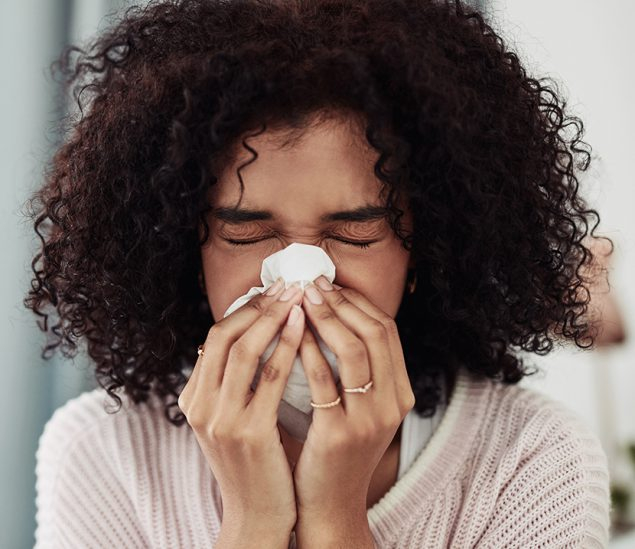Coughing and Sneezing
One of the first and most obvious symptoms of a wide range of illnesses that trouble us, especially in the winter, is the terrible cough. The cough is more prevalent during the cold and flu season. Coughing is a reflex action your body performs when it detects anything it doesn't want inside of it, similar to vomiting. It's a little less fussy about how it works than vomiting.
Basically, coughing will be brought on by anything that irritates your breathing. Because of this, getting a cold can make you cough, but so can smoking or accidentally putting pepper in your nose. Your body is attempting to expel something that it senses isn't supposed to be there by releasing a burst of air that can actually drive objects 50 miles per hour forth. Similar functions are essentially carried out by sneezing.
As we just saw, a common side effect of many illnesses is the formation of mucus; therefore, in certain circumstances, coughing is a complimentary action that aids in clearing your airways to ensure that you can continue to breathe. On the other hand, as a defense against infection or viruses, certain proteins in our immune system can lead to inflammation in our airways and throats. Since your airway is inflamed, a cough is a side effect of this. In some situations, the cough itself might not be getting rid of anything. However, in general, a cough and sneeze both function to clear infections from your airways.












